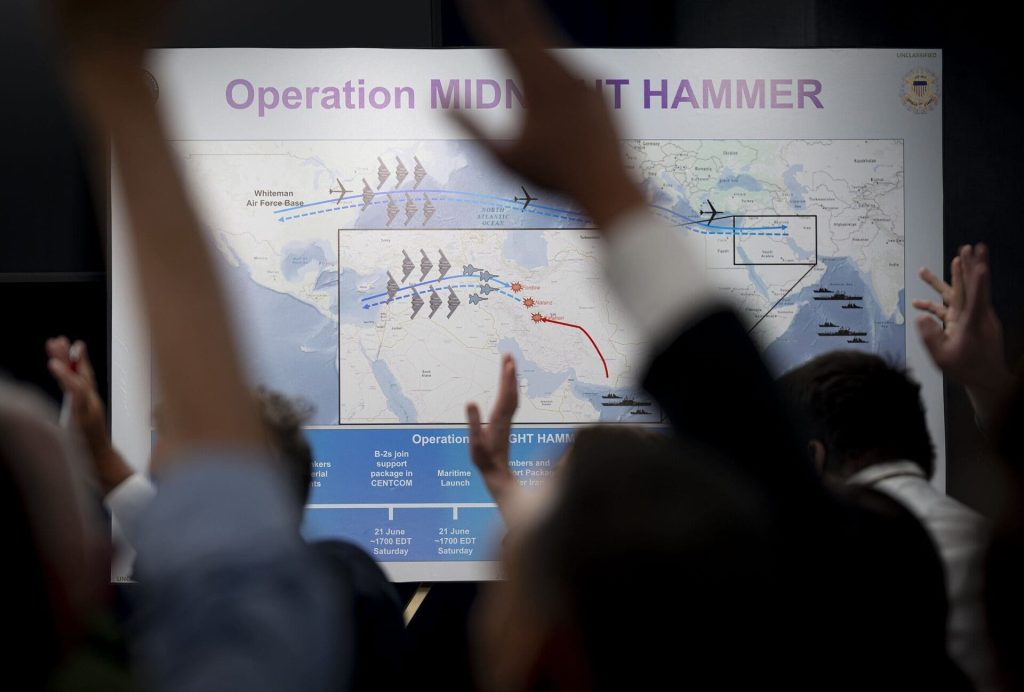Andrew Leber, an assistant professor in the Department of Political Science and the Middle East & North African Studies Program at Tulane University, has made notable contributions to the discourse surrounding U.S. foreign policy, particularly in relation to the Middle East. As a cofounder of Fellow Travelers Blog, Leber has actively engaged in discussions that dissect the complexities of American involvement in this politically charged region.
Shifts in U.S. Policy
Since late 2010, U.S. policy regarding the Middle East has evolved considerably, particularly in how the Israeli-Palestinian conflict is addressed. The Obama administration, seeking to focus on pressing issues such as Iran’s nuclear ambitions, largely relegated the conflict to the background. This shift has led to a situation where American interests became entangled in a new crisis following Israel’s military responses to attacks from Hamas on October 7. The resurgence of engagement with Iran creates a challenging landscape for U.S. diplomacy, raising concerns about a potential escalation into a broader military conflict.
The Specter of Military Engagement
Critics of former President Trump’s decision to deploy B-2 bombers without congressional approval emphasize the risks of entering a protracted military engagement reminiscent of the Iraq War. This critique underscores a growing anxiety about the U.S.’s obligations and the costs associated with deeper involvement in the Middle East. Trump’s actions raised alarms not only for their immediate implications but also for the long-term ramifications of commitments made in one area influencing policies in another.
The Limits of “Restraint” Politics
Trump’s military decisions illustrate the limitations of a foreign policy based on restraint, which often advocates for avoiding costly ground wars while permitting air strikes and drone operations. This approach has persisted across multiple administrations, echoing sentiments from Obama’s “no boots on the ground” doctrine. Despite the lack of direct military casualties on American soil, the moral implications of such military actions and their impacts on civilians in the targeted countries remain contentious.
U.S. Support for Israel
The implications of U.S. support for Israel’s military actions raise significant ethical questions. The narrative of an Israel that operates under a “might makes right” philosophy results in substantial reputational and material risks for the U.S. That support, rooted in historical alliances, sustains an environment where conflicts can escalate without the necessary checks and balances typically desired in a democratic society.
The Yemen Model: A Case Study
The current discourse resonates with past engagements, particularly regarding Saudi Arabia’s military intervention in Yemen. In this context, the U.S. served as a critical enabler through arms sales and diplomatic backing. Public outrage over humanitarian crises can shift political landscapes, as evidenced when Congress reacted to the moral implications of U.S. support for Saudi actions. This model illustrates how popular mobilization and moral framing can help challenge problematic alliances and foster accountability.
Building Momentum for Change
Efforts to reshape U.S. foreign policy are already being made, but they require building broader coalitions that highlight shared humanity, akin to movements advocating for Palestinian rights. As progressive groups push for a foreign policy that resonates with ethical commitments to international law, the conversation around shared humanity and well-being must be a central tenet.
The Challenge of a Two-Party System
U.S. political dynamics complicate the discourse. An overwhelming majority of political support for Israel exists among both dominant parties. This pervasive endorsement complicates the scope and nature of critiques on Israeli policies, making it difficult for politicians to openly question long-standing alliances without risking significant backlash.
Legislative Action and Oversight
Efforts to implement War-Powers legislation are underway, serving as a mechanism for Congress to exert oversight on military engagements. Engaging more meaningfully in these discussions allows space for public advocacy surrounding military actions and their potential domestic consequences. However, tensions persist within the Democratic Party regarding how to engage with Israel and manage responses to ongoing conflicts in the Middle East.
Engaging the Public
At the grassroots level, fostering dialogue concerning U.S. foreign policy in the Middle East is essential. This includes supporting candidates who advocate for balanced discussions about Israel and Palestine. Broadening the scope of what public discourse encompasses—integrating global humanitarian views—can help reshape U.S. engagement in the region.
Addressing Israel Directly
Continued efforts to address U.S. support for Israel must involve rigorous questioning of military aid and the ethical ramifications of the “might makes right” approach. Advocating for accountability and scrutinizing actions taken by the Israeli state are crucial steps in aligning U.S. foreign policy with a principled stance on human rights.
The Long-Term Vision
Ultimately, fostering a comprehensive and empathetic approach to U.S. foreign policy in the Middle East requires acknowledging the interconnectedness of humanitarian issues and security concerns. It means challenging disinterest in Palestinian liberation and recognizing that the principles of justice and humanity need to guide U.S. actions abroad. The road forward involves collaborative efforts to reshape these narratives, ensuring that U.S. engagements do not continue to exacerbate human suffering.
Thus, through these multifaceted analyses, scholars like Andrew Leber contribute to a crucial understanding of the political landscape in the Middle East and the role of U.S. foreign policy, urging for a more humane and ethically sound approach in dealings with complex regional dynamics.

